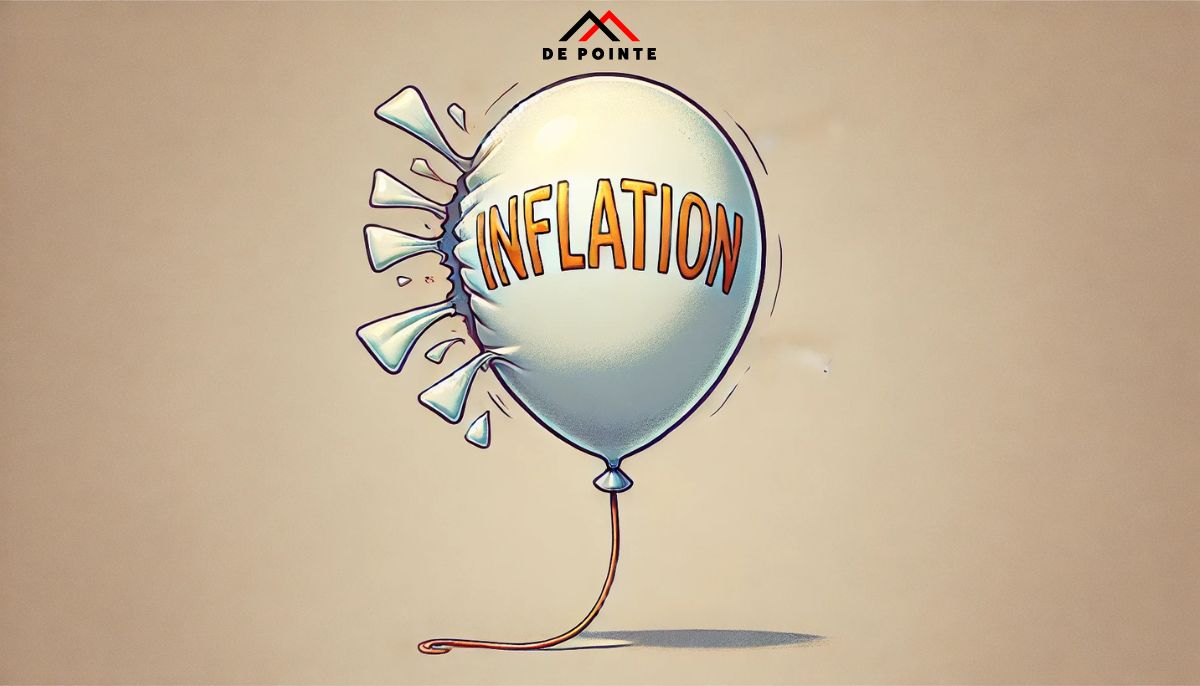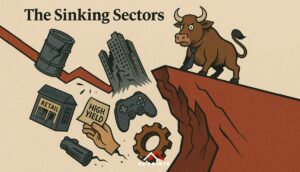Article

The latest inflation data for the UK shows that the Consumer Price Index (CPI) rose by 1.7% in the year to September 2024, down from 2.2% in August, marking a significant slowdown (Office for National Statistics). This is particularly important as inflation has been a key concern for policymakers and investors, especially following the sharp price increases post-pandemic and during the energy crisis of 2022. While inflation has cooled, its impacts are still reverberating across markets, and the question on everyone’s mind is how this shift will affect monetary policy, interest rates, and investment decisions.uidance tailored to your investment goals.
The Likely Path for Interest Rates
As inflation slows, the Bank of England faces pressure to reconsider its elevated interest rate policy, which currently stands at 5% (GOV.UK). These rate hikes were necessary to bring inflation down from its peak of 11.1% in late 2022, but with inflation now below the target, the central bank is expected to take a more accommodative stance. There is growing speculation of a potential rate cut in the coming months, which would ease borrowing costs and likely spur economic activity.
However, investors should remain cautious. While rate cuts could support growth, there’s also the risk of inflation creeping back if the Bank acts too aggressively. The UK’s economy remains fragile, with growth prospects hindered by global factors such as energy prices, geopolitical tensions, and supply chain disruptions. Therefore, any monetary easing will be gradual and carefully calibrated.ance tailored to your investment goals.
The Likely Path for Interest Rates
As inflation slows, the Bank of England faces pressure to reconsider its elevated interest rate policy, which currently stands at 5% (GOV.UK). These rate hikes were necessary to bring inflation down from its peak of 11.1% in late 2022, but with inflation now below the target, the central bank is expected to take a more accommodative stance. There is growing speculation of a potential rate cut in the coming months, which would ease borrowing costs and likely spur economic activity.
However, investors should remain cautious. While rate cuts could support growth, there’s also the risk of inflation creeping back if the Bank acts too aggressively. The UK’s economy remains fragile, with growth prospects hindered by global factors such as energy prices, geopolitical tensions, and supply chain disruptions. Therefore, any monetary easing will be gradual and carefully calibrated.
Key Investment Implications
Equity Markets
Lower interest rates support stock market performance. When borrowing costs are reduced, companies can finance operations and expansion more cheaply, improving their profit outlook. This is particularly beneficial for capital-intensive sectors like real estate, utilities, and technology. Investors can expect these sectors to outperform in the short term if rates begin to decline. However, caution is needed, as the broader economic environment remains uncertain, and equity market volatility could persist if economic data fluctuates or geopolitical risks intensify.
Fixed Income and Bonds
Bond markets are directly impacted by inflation and interest rate changes. As inflation falls and the likelihood of rate cuts increases, bond yields—which move inversely to prices—could decline, making bonds more attractive. Long-term government bonds (gilts) are particularly likely to benefit from this environment, as they typically gain value when inflation expectations and interest rates fall. In contrast, inflation-linked bonds will become less attractive as lower inflation erodes the benefits of these instruments.
This environment might be a good time for investors seeking income to lock in bond yields before rates fall further. Additionally, those with exposure to inflation-linked bonds should consider reducing their holdings or diversifying into fixed-rate securities.
Tangible Assets: Gold and Art
Gold remains a crucial part of a diversified portfolio, particularly as a hedge against volatility and inflation. Although the immediate threat of inflation is receding, gold’s role as a safe-haven asset will remain important, especially given the ongoing global economic uncertainties. Gold provides security for investors looking for protection against possible inflationary rebounds, though its upside may be limited as inflation stabilizes.
Similarly, Art presents a compelling opportunity for investors looking for assets that lack correlation to traditional financial markets. As inflation recedes, the art market may not benefit from the immediate appeal of an inflation hedge. However, its strong performance in recent years, with returns of 29% in 2022 and 11% in 2023, underscores the long-term value that art offers as part of an alternative investment strategy (GOV.UK).
At De Pointe Research, we’ve long advocated for incorporating alternative assets like gold and art into portfolios to provide an anchor during volatile economic times. This strategy remains valid, even as inflation slows since these assets offer diversification benefits and resilience against market shocks.
Real Estate
The property market could see a resurgence if interest rates are cut. Lower mortgage rates would increase affordability, driving demand and supporting property prices. Investors should focus on regions with strong demand fundamentals, such as urban centres with limited housing supply. However, property prices in the UK have been under pressure due to high interest rates, and any recovery will depend on how quickly and by how much borrowing costs decrease.
Commercial real estate, particularly sectors like warehousing and logistics, is expected to perform well as e-commerce continues to grow and demand for logistics space remains high. Investors may also find opportunities in sectors like student accommodation, where demand remains robust despite broader market challenges.
Strategic Considerations for Investors
The UK’s inflation trajectory, combined with potential interest rate changes, presents risks and opportunities for investors. While the immediate environment may signal a pivot towards lower rates, it is crucial to remain vigilant, as geopolitical factors and energy prices could influence inflation trends in the future.
Investors should:
- Diversify portfolios to balance between traditional assets like equities and bonds and alternative assets like gold and art.
- Monitor interest rate changes closely, especially in fixed-income markets, to take advantage of rising bond prices and lock in favourable yields.
- Stay cautious on equities, focusing on sectors that benefit from lower borrowing costs but remaining mindful of broader economic risks.
- Maintain exposure to tangible assets, such as property and gold, which offer stability and diversification in uncertain economic conditions.
At De Pointe Research, we continue to advise clients on how best to position their portfolios in response to changing macroeconomic conditions. With inflation receding but uncertainty still present, a well-rounded approach that includes both traditional and alternative investments will be vital in securing long-term returns. Reach out to us today for personalized guidance tailored to your investment goals.





